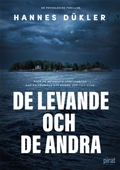
Lägg till önskelistan
Swansea Pals e-bok
Pris
115 kr
The Swansea Battalion was formed from local men by the Mayor of Swansea in the response to Lord Kitchener’s famous appeal for volunteers. This, the first full history of the Battalion, covers early recruiting for the battalion in the Swansea area and its subsequent training in Swansea, Rhyl and Winchester, prior to departure, some 1,200 strong, in December 1915 for the Western Front.
As part of the 38th Welsh Division it participated in the attack on Mametz Wood on the Somme where, in...
E-Bok
115 kr
Pris
Förlag
Pen and Sword
Utgiven
2 September 2021
Längd
224 sidor
Genrer
Historia & Arkeologi, Fackböcker
Språk
English
Format
epub
Kopieringsskydd
Vattenmärkt
ISBN
9781783037025
The Swansea Battalion was formed from local men by the Mayor of Swansea in the response to Lord Kitchener’s famous appeal for volunteers. This, the first full history of the Battalion, covers early recruiting for the battalion in the Swansea area and its subsequent training in Swansea, Rhyl and Winchester, prior to departure, some 1,200 strong, in December 1915 for the Western Front.
As part of the 38th Welsh Division it participated in the attack on Mametz Wood on the Somme where, in a single day, it suffered almost 100 men killed and 300 wounded out of an attacking contingent of less than 700.
A further very successful raid on the German held High Command Redoubt was followed by front line service in the dreaded Ypres Salient. Here it took part in the bloody third Battle of Ypres, better known today as the Passchendaele Offensive.
At Aveluy Wood it was accidentally shelled by its own artillery, suffering a number of fatalities. The Swansea Battalion then took an active part in the battles that finally broke the Hindenburg Line and the spirit of German resistance, one of its exploits being described as the high point of soldierly achievement by Douglas Haig. It was still advancing when the Armistice was signed in November 1918.





